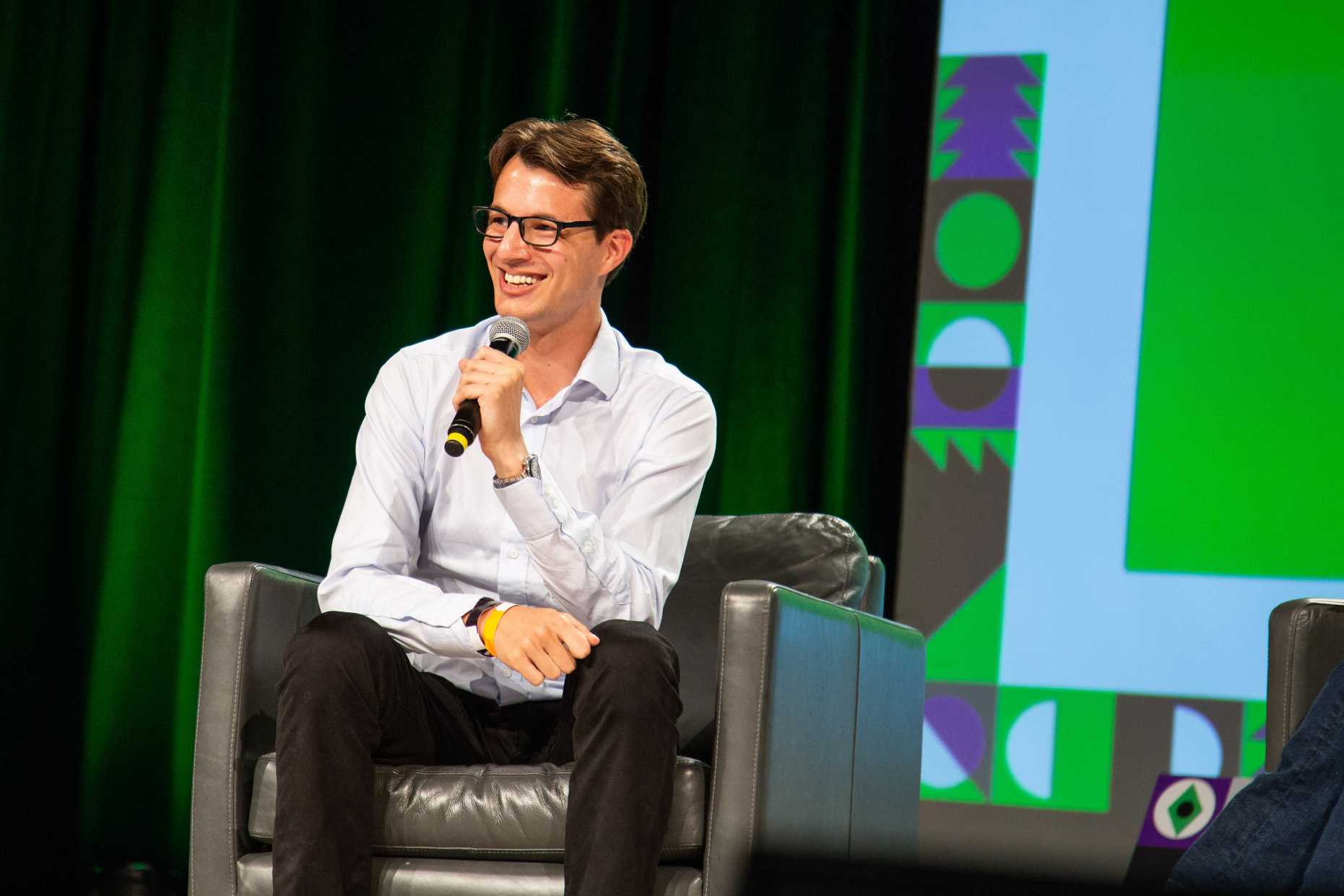Severin Hacker: "You must have the courage not to be perfect in your expression."
Alumni Portraits
Severin Hacker studied computer science at ETH Zurich. He earned his doctorate at Carnegie Mellon University in Pittsburgh, where he developed the language app "Duolingo" together with his professor. In 2014, he was listed among the "Top Innovators under 35" by MIT Technology Review. This year, he was chosen as one of the "Entrepreneurs of the Year" by One Young World.

You were chosen as Entrepreneur of the Year by One Young World this year. First, our heartfelt congratulations! How do you feel?
Very good. This is a confirmation of the path we chose for Duolingo and a recognition for my personal entrepreneurial achievements.
In 2015, Google Capital announced that it would invest 45 million dollars in Duolingo. You had over a 100 million users at that time. Today, you have 300 million. What were the most important development steps of recent years?
We have consistently deepened and expanded our range of services. Language learners in our best courses reach a level of B1 (independent use of language) according to the Common European Framework of Reference (external page CEFR). We now offer over 90 language courses, including Chinese (from English) and Japanese (from English).
A 2012 study showed that 34 hours with Duolingo had the same effect as a semester of language study at university. In your 2015 interview, you said that you would like to repeat that study. Did that happen?
Not the same study. We built an internal team instead, whose sole task is to measure the learning effectiveness (Learning Assessment Team). That’s how we know that our efficiency (learning per unit of time) has improved a lot, and that we can get our learners up to a B1 level with Duolingo alone.
You also mentioned that Duolingo has to work on improving the users' speaking proficiency. How successful were you?
Oral expression is one of the most difficult aspects of learning a foreign language. We developed special audio lessons for that, but we’re currently still testing them. Next to the actual language acquisition, you also need a bit of an effort of will: you need to have the courage to express yourself imperfectly.
You offer courses in, for example, High Valyrian and Klingon. How do you decide which language to implement?
At Duolingo, this is decided by volunteers who join our Incubator project. As soon as a course is finished and the internal quality criteria are met, it becomes available.